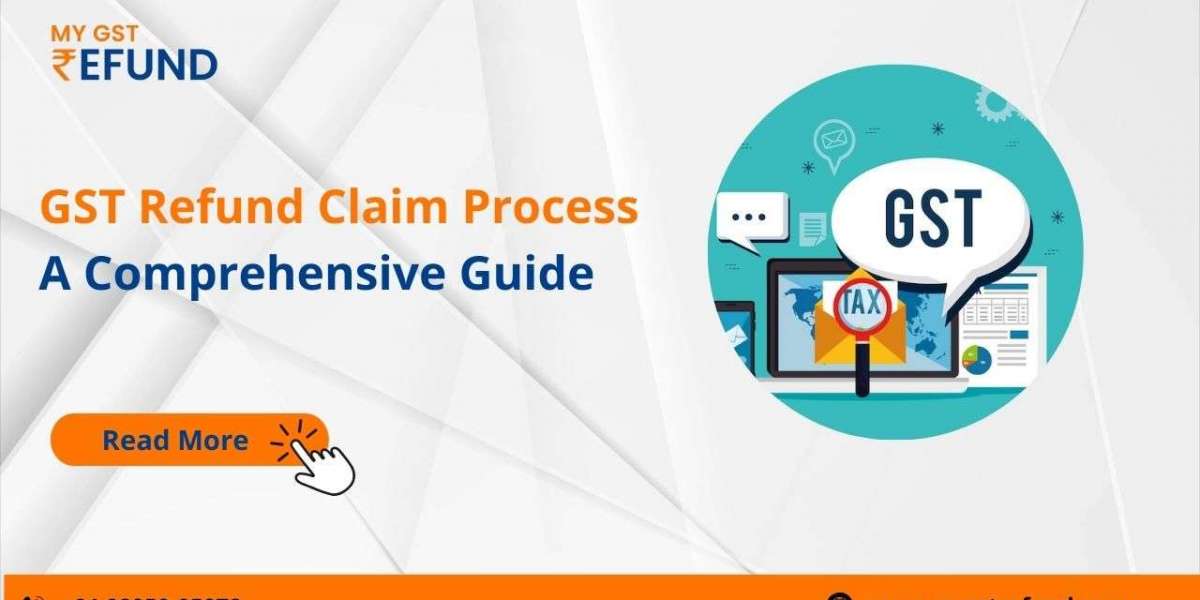Navigating the Goods and Services Tax (GST) system can be overwhelming for businesses, especially when filing for GST refunds. At MY GST Refund, we aim to simplify the entire refund process, ensuring that businesses, both small and large, can recover the taxes they've overpaid and optimize their cash flow. In this detailed guide, we’ll explain everything you need to know about GST refunds, why they matter, and how the claim process works in India.
What is a GST Refund?
A GST refund refers to the repayment of excess GST paid by a taxpayer to the government. When businesses overpay GST on goods or services, or when the tax paid on inputs exceeds the output tax collected on sales, they are entitled to claim a refund. GST refunds are crucial for maintaining the financial health of businesses and ensuring they aren’t unduly burdened by tax payments that aren’t due.
Why Might Businesses and Individuals Be Entitled to a Refund?
Several situations may arise where businesses and individuals are eligible for GST refunds:
Input Tax Credit (ITC) Refund: When a business accumulates more input tax credits (ITC) than the output GST they’ve collected, they can claim a refund of the excess amount.
Excess Tax Paid: Sometimes businesses may unintentionally pay more GST than required. In such cases, they can claim the excess amount back.
Export Refunds: Goods and services exported outside India are generally zero-rated for GST. Businesses engaged in exports can claim refunds on the GST paid for inputs used in the production of export goods.
Refund on Inverted Duty Structure: If a business faces a situation where the tax rate on inputs is higher than the output GST, it may be eligible to claim a refund of the excess tax paid.
For More Info Visit: GST Refund for Exporters
Types of GST Refunds
Export Refunds: GST paid on inputs used for export goods or services is refundable because exports are generally zero-rated under GST.
Input Tax Credit (ITC) Refund: This type of refund occurs when the business has more input tax credits than the output GST collected.
Excess Tax Paid: This occurs when a business has paid more GST than was due, either by mistake or overpayment.
Refund Due to Inverted Duty Structure: When the GST rate on inputs exceeds the rate on finished goods, businesses can claim a refund of the excess tax paid.
Refund on Exempted Supplies: If a business is making exempted supplies but has paid GST on its inputs, it may claim a refund on the input tax credit.
Why is GST Refund Important for Businesses?
The process of claiming GST refunds is not just about recovering overpaid taxes—it plays a pivotal role in improving the financial health and operational efficiency of businesses. At MY GST Refund, we understand how crucial these refunds are for your business. Here’s why GST refunds matter:
Cash Flow Management Claiming a GST refund can significantly improve a business's cash flow. This money can be reinvested into operations, paid to creditors, or used for other critical business needs, reducing financial strain.
Improving Profitability and Liquidity With an effective GST refund process in place, businesses can enhance their liquidity. This increased cash flow can help reduce debt, manage operating costs more effectively, and increase overall profitability.
Reducing GST Liabilities By claiming GST refunds, businesses can reduce their overall GST liabilities. This ensures that businesses are only paying the appropriate amount of GST and can prevent overpayments from becoming a financial burden.
Minimizing Financial Burden Businesses making exports or exempt supplies should not bear the full cost of GST, and refunds help mitigate this issue. A streamlined refund process ensures that businesses don’t face undue financial strain.
For More Info Visit: Deemed Exports under GST
Overview of the GST Refund Process in India
The GST refund claim process can sometimes seem complicated, but with the right approach, businesses can navigate it smoothly. Below, we outline the steps involved, along with the typical timeframes and common challenges you may face.
1. Basic Steps Involved in Filing a Refund Claim
Here’s an overview of the steps to follow when claiming a GST refund:
Step 1: Check Your Eligibility Ensure that your business is eligible to file a GST refund claim. Common reasons for filing include excess tax paid, exports, or claims due to an inverted duty structure.
Step 2: Fill Out the Refund Application Refund applications are submitted using the prescribed forms, depending on the nature of the refund:
Form RFD-01 is used for general refund claims.
Form RFD-01A is used specifically for refund claims related to exports.
You will need to provide all necessary documentation such as tax invoices, shipping bills (for exports), and proof of excess payment. At MY GST Refund, we help you ensure that all paperwork is complete and accurate.
Step 3: Submit the Refund Application Once you’ve completed the form, submit it through the appropriate channels for processing. You’ll need to provide supporting documents like your bank account details for direct refund processing.
Step 4: Processing of Refund After submission, the GST authorities will review the refund claim and accompanying documents. They may request additional information or clarification if needed.
Step 5: Receiving the Refund Once the claim is approved, the refund will be credited directly to the applicant’s bank account. Refunds are typically processed within 60-90 days, depending on the type and complexity of the claim.
For More Info Visit: GST Refund under Inverted Duty
2. Timeframes for Processing and Receiving a Refund
The GST Act stipulates that refund claims should be processed within 60 days from the date of filing. However, the actual processing time can vary based on factors such as the nature of the refund, the complexity of the documents, and whether an audit is required.
If the GST authorities delay the refund beyond the 60-day window, interest will be paid to the claimant at the applicable rate. It's important to ensure your refund application is accurate to avoid delays.
3. Common Issues Businesses Face When Claiming Refunds
At MY GST Refund, we help businesses avoid common pitfalls in the refund process. Here are some issues that businesses often face:
Incomplete Documentation: Missing invoices, shipping bills, or incorrect forms can delay the refund process. We guide you in preparing complete and accurate documentation.
Delayed Processing: While the government aims to process refunds within 60 days, delays may occur due to verification checks, especially in export refunds.
Rejection of Claims: Refund claims can be rejected if they do not meet the necessary eligibility criteria or lack the required documentation. Ensuring proper filing and documentation is crucial.
GST Refund Audits: In some cases, businesses may undergo an audit to verify their refund claims. This process can take time and may delay refunds.
GST Fraud Prevention: The GST department is vigilant about fraudulent refund claims, particularly in export and ITC refund cases. Properly verifying the details of the claim helps avoid issues of fraud or non-compliance.
For More Info Visit: GST Refund Claim Process
Conclusion
The GST refund process can seem daunting, but businesses can easily navigate the complexities with the right expertise. At MY GST Refund, we are committed to helping you maximize your refund potential by ensuring that all claims are accurate, timely, and compliant with GST laws.
By understanding the eligibility criteria, following the correct procedure, and addressing common challenges, businesses can recover overpaid taxes and improve their financial position. Whether dealing with exports, excess tax payments, or ITC issues, MY GST Refund is here to simplify the process and help you claim your rightful refund.







